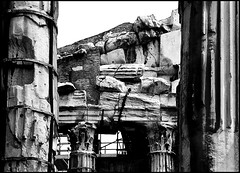The Eunuch in the Sacred Books
Eunuch is a man’s private parts have been crushed or cut off:
This was sometimes done to show devotion to pagan gods.
According to Dictionary.com, Eunuch is:
“A castrated man employed as a harem attendant or as a functionary in certain Asian courts. A man whose testes are nonfunctioning or have been removed. A castrated man, esp. one formerly employed by Oriental rulers as a harem guard or palace official.
Word History: The word eunuch does not derive, as one might think, from the operation that produced a eunuch but rather from one of his functions. Eunuch goes back to the Greek word eunoukhos, “a castrated person employed to take charge of the women of a harem and act as chamberlain.” The Greek word is derived from eun?, “bed,” and ekhein, “to keep.” A eunuch, of course, was ideally suited to guard the bedchamber of women.
According to Wikipedia, the free encyclopedia
“A eunuch is a castrated man; the term usually refers to those castrated in order to perform a specific social function, as was common in many societies of the past. The earliest records for intentional castration to produce eunuchs are from the Sumerian cities of Lagash in the 21st century BC
Among the earliest records of human religion are accounts of castration as an act of devotion, and sacred eunuchs are found in spiritual roles. Archaeological finds at Çatalhöyük, a large Neolithic town of southern Anatolia, suggest that such practises were common in the worship of the goddess Cybele in 7500 BC. The Galli, later Roman followers of Cybele, also practiced ritual self-castration, known as sanguinaria. The practice continued throughout Christian times,
